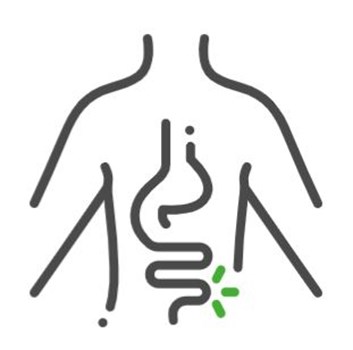Your Guide to Parastomal Hernia & Physical Activity
Ostomy Care
Ostomy Care
Living with an Ostomy

A parastomal hernia (PSH) is a bulge around the stoma where extra loops of bowel have come through the abdominal wall next to the stoma and lie between the muscle and the skin.
There is little conclusive research about parastomal hernias, and no-one knows for sure why some people develop one and others don’t.
Parastomal hernias are quite common. Around 50%-60% of people who have a stoma will eventually develop a parastomal hernia.1,2
It’s not fully understood why some people develop a PSH and other people don’t. Research is ongoing and doctors are trying to find out more about parastomal hernias, what causes them, and how to repair them effectively.
Based on the current evidence available and the clinical experience of specialists and clinicians involved in preparing this guide, there appears to be a range of factors that may increase your chances of developing a PSH or a hernia becoming larger.3

The me+ Recovery series provides information and support about the importance of movement and physical activity after ostomy surgery.
Too many people are worried about harming themselves by doing physical activity, when in fact there are so many benefits to being active. To address this, we developed the me+ Recovery series, which is based on gentle movements, guiding users through their recovery after ostomy surgery and beyond.
1 R. M. Anderson et al. ‘Incidence and risk factors for parastomal bulging in patients with ileostomy or colostomy: a register-based study using data from the Danish Stoma Database Capital Region’. Colorectal Disease 2017. 20, 331-340.2.
2 Russell, S. Parastomal Hernia and physical activity. Are patients getting the right advice? British Journal of Nursing, 2017 (stoma supplement) Vol 26, No 17.
3 R. M. Andersen et al. Incidence and risk factors for parastomal bulging in patients with ileostomy or colostomy: a register-based study using data from the Danish Stoma Database Capital Region. Colorectal Disease. 2017, 20. 331-340.7.
4 De Raet J, Delvaux G, Haentjens P, Van Nieuwenhove Y: Waist circumference is an independent risk factor for the development of parastomal hernia after permanent colostomy. Dis Colon Rectum 2008, 51(12):1806-1809.